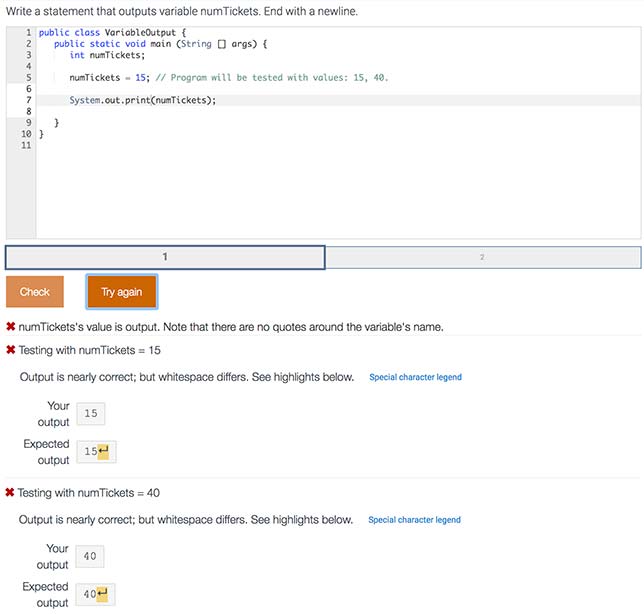Coding Education Tool to Include Progression Feature
- By Dian Schaffhauser
- 06/27/18
A project funded by the U.S. Department of Education will focus on the creation of a prototype of a web-based coding progression tool for high schoolers and college students. The tool will take students through coding practice that starts at an easy level then gets successfully harder. Zyante, which produces zyBooks, received a $200,000 Phase 1 development grant from the Department's Institute of Education Sciences through the Small Business Innovation Research program.
The prototype will include a "progression tool" to allow students to take small steps and receive immediate feedback while actively solving problems. The program will simultaneously generate and grade exercises, provide solutions and give explanations for important coding practices. According to Zyante, a "key innovation" is the automation of hints and tips generated based on the particular error that a student might be making.

Mock-up of the program prototype. Source: Zyante.
The company intends to test the program in five high school classrooms to examine whether the prototype works as planned. Teachers participating in the pilot will weigh in on whether the full product concept could be implemented and whether it shows promise for improving student outcomes in coding and computer science. Although the pilots are focused on high school students, the company said the technology could be used in college classes as well.
"We are thrilled to have the opportunity to create this program that allows students to practice and build coding skills in an immersive way," said Smita Bakshi, co-founder and CEO of the company, in a press release. "We look forward to furthering our mission of helping college STEM students graduate and succeed."
The company's flagship product line consists of digital curriculum for computer science, engineering and math courses that use "minimal text, question sets, animations, interactive tools, and embedded homework." So far, the company said, 500 universities have tried zyBooks in their courses as replacements for traditional textbooks.
About the Author
Dian Schaffhauser is a former senior contributing editor for 1105 Media's education publications THE Journal, Campus Technology and Spaces4Learning.